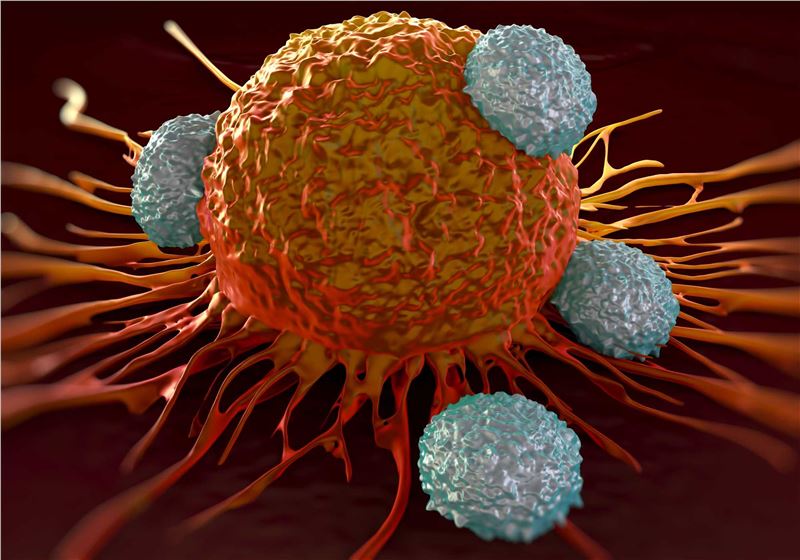Therapeutic Exosomes for Pancreatic Cancer
Pancreatic Cancer (PaCa), which is easily misdiagnosed as a gastric disease at an early stage, has an insidious onset and progresses rapidly. The survival time of PaCa patients is very short. PaCa is highly aggressive and prone to drug resistance during chemotherapy. Therefore, under medical research in recent years, the 5-year survival rate of PaCa patients has not been significantly improved. Nanovesicles are considered a promising drug delivery system. Among them, exosomes have more advantages than liposomes. Because exosomes are less toxic, they release higher levels of the drug after fusion with the PaCa cell membrane. Creative Biolabs has many years of exosome loading experience and can provide high-quality exosome drug research and development services.
Pancreatic Cancer (PaCa) and Exosome
PaCa is one of the common malignant tumors of the digestive tract, and has the title of "King of Cancer". The five-year survival rate after diagnosis of PaCa is about 10%, and it is one of the malignant tumors with the worst prognosis. PaCa mainly originates from the pancreatic ductal epithelium and acinar epithelium. PaCa is usually asymptomatic in the early stage and is diagnosed in the late metastatic stage. PaCa-derived exosomes communicate with various cells in the tumor microenvironment or cells in distant organs, thereby promoting PaCa growth, angiogenesis, metastasis, drug resistance, and immunosuppression.
Therapeutic Exosomes for PaCa
In terms of treatment, PaCa has a low surgical resection rate and is not sensitive to chemotherapy, resulting in an unsatisfactory curative effect. As a kind of nano-scale vesicles secreted by the body itself, exosomes have the characteristics of low immunogenicity, high stability, good permeability, and certain targeting. It has been found in in vitro experiments that PaCa cells can actively take up engineered exosomes and induce cytotoxicity. Numerous studies have found that some nucleic acids and drugs can inhibit the growth of PaCa, but targeted and stable carriers are needed to deliver these therapeutic molecules. miR-34a-encapsulated exosomes (exomiR-34a) can down-regulate the expression of target gene Bcl-2 and up-regulate the expression of apoptosis-related genes to induce PaCa cell apoptosis, thereby inhibiting the growth of PaCa. Mutation at codon 12 of the proto-oncogene KRAS (KRASG12D) in PaCa results in uncontrolled division and growth of PaCa cells in 90% of patients with PaCa. Mesenchymal cell-derived exosomes loaded with KRASG12D-inhibiting siRNA have been shown to reduce KRASG12D mRNA levels in PaCa cells and reduce PaCa transfer via macropinocytosis. This exosome drug has now entered clinical phase I.
Nucleoside analog drug Gem*itabine and Paclitaxel (PTX) are excellent drugs for the treatment of PaCa. However, direct injection of GEM and PTX has low efficacy and poor targeting. Therefore, to overcome this limitation, a research group has extracted autologous PaCa-derived exosomes and loaded GEM into exosomes (Exosomes loaded with Gem*itabine) for targeted therapy of PaCa. It has been found that Exosomes loaded with Gem*itabine significantly inhibited the growth of PaCa in mice. Even more surprising, PaCa disappeared in several of the Exosomes loaded with Gem*itabine-injected mice and did not relapse. Likewise, MSC-derived exosomes loaded with PTX significantly promoted PaCa cell apoptosis, resulting in a 50% reduction in PaCa numbers.

Creative Biolabs has a comprehensive and efficient exosome one-stop service research platform and has always been committed to the research and development of exosome drugs to help the treatment of PaCa. Please feel free to contact us to discuss your ideas and solutions to assist your project.
References
-
Zhao, X.; Ren, Y.; et al. Potential diagnostic and therapeutic roles of exosomes in pancreatic cancer. Biochimica Biophys Acta. Reviews on Cancer. 2020, 1874(2):188414.
-
Li, YJ.; Wu, JY.; et al. Gemcitabine loaded autologous exosomes for effective and safe chemotherapy of pancreatic cancer. Acta Biomaterialia. 2020, 101:519-530.
-
Oliveira, C.; Calmeiro, J.; et al. Exosomes as new therapeutic vectors for pancreatic cancer treatment. European Journal Pharmaceutics and Biopharmaceutics. 2021, 161:4-14.
For Research Use Only. Cannot be used by patients.
Related Services:











